By Leah Mann
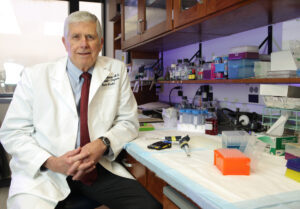
When Dr. Harold “Hal” Moses, professor emeritus of cancer biology, accepted the role of chair of the cell biology department in 1985, he was charged with preserving the standard of teaching and furthering research. He hired the internationally recognized Brigid Hogan, who became the Hortense B. Ingram Professor of Cell Biology, to help him recruit additional developmental biologists; together they brought an additional 20 faculty members on board. Indeed, the department thrived and ranked “34th in the nation for [National Institutes of Health] funding when I joined and fourth when I stepped down,” Moses said.
Earlier in his career, Moses attended the Vanderbilt School of Medicine, was a professor of pathology, and assumed positions at the NIH and the Mayo Foundation. Before his final return to Vanderbilt, Moses made his mark in the early 1980s as a co-discoverer of transforming growth factor-beta, a cytokine that plays significant roles in immune and stem cell regulation. Moses and his colleagues garnered enormous attention when they demonstrated that TGF-β is a growth inhibitor, establishing its clinical relevance to cancer and diseases. They later determined the paradoxical nature of the protein, as TGF-β signals contribute to tumor suppression in early stages of cancer but promote tumor growth in later stages.
Although the impact of Moses’ work on TGF-β has been immeasurable, there is no clean-cut implication for TGF-β to improve clinical outcomes. Yet Moses remains hopeful that TGF-β may prove to be clinically significant for pharmaceuticals in light of promising cancer immunotherapies that seek to block its signaling.
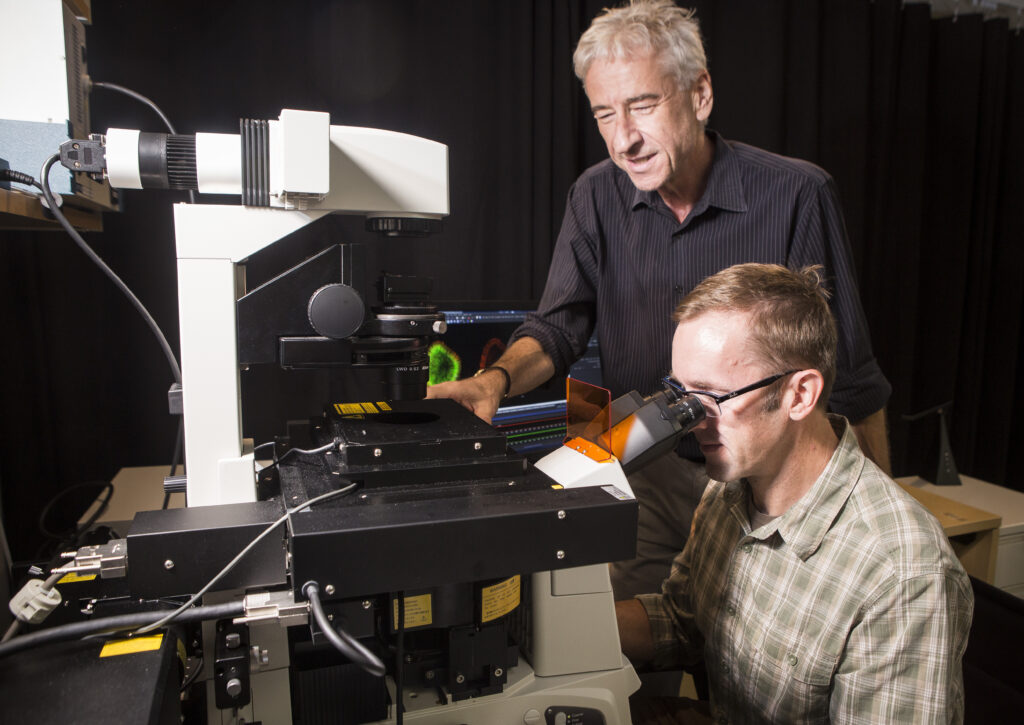
A path to the future
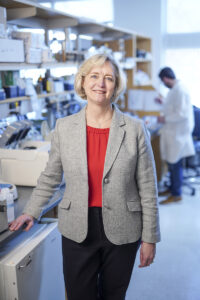
In 1998, Moses was succeeded as chair by Susan Wente, former professor of cell and developmental biology who subsequently became provost and then interim chancellor, who was in turn succeeded by Ian Macara, Louise B. McGavock Professor and current chair of the department. Since his arrival, Macara has recruited nearly 50 percent of the department’s faculty, increased the number of microscopes from three to more than 30, and worked diligently to establish the Nikon Center of Excellence—a key microscopy and imaging resource for scientists across campus.
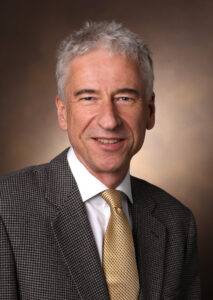
While the scientists in the department ask “fundamental questions about how cells work and organisms develop,” many of these investigations do cross into the realm of clinical research, Macara said.
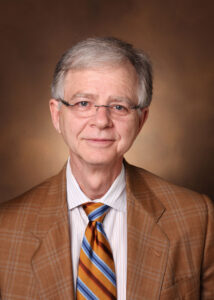
Building on Moses’ findings, Dr. R. Daniel Beauchamp, the John Clinton Foshee Distinguished Professor of Surgery and professor of cell and developmental biology who died in November 2022, maintained a strong research program of TGF-β alterations in colorectal cancer. On parallel non-TGF-β cancer tracks, cell and developmental biologists at Vanderbilt are investigating changes in cells that lead to pancreatic cancer, subpopulations of cells responsible for brain tumor growth, and the interactions between oncogenes and other proteins for developing cancer treatments.
With the solid foundation laid by basic science scholars such as Moses, Wente, and Macara, the Department of Cell and Developmental Biology continues to be a highly collaborative department that advances biomedical research and trains future scientists.